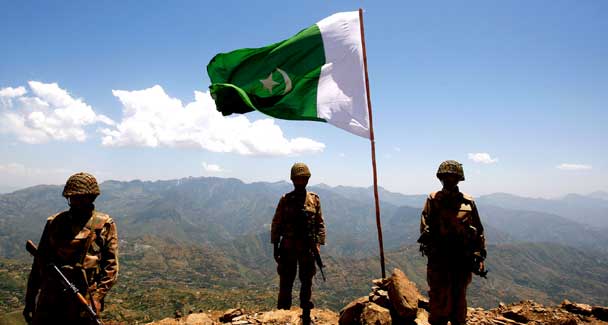Pakistan decided Tuesday to boycott a key international conference on Afghanistan next month, ramping up its protest over lethal cross-border NATO air strikes that have plunged US ties into deep crisis.
The decision was taken at a Pakistani cabinet meeting in the eastern city of Lahore, just days after Islamabad confirmed it was mulling its attendance in the German city of Bonn, where Pakistan’s participation was considered vital.
“The cabinet has decided not to attend the Bonn meeting,” a government official told AFP on condition of anonymity.
The prime minister’s office said the cabinet agreed that “unilateral action” such as Saturday’s strike in the tribal district of Mohmand and the May 2 US killing of Osama bin Laden near the capital was “unacceptable”.
US-led investigators have been given until December 23 to probe the attacks, threatening to prolong significantly Pakistan’s blockade on NATO supplies into Afghanistan implemented in retaliation for the killings.
The US military appointed Brigadier General Stephen Clark, a one-star air force general based in Florida, to lead the investigation into the attack.
The team, set to include a NATO representative, is yet to arrive in Afghanistan but an initial military assessment team went to the border at the weekend after Saturday’s catastrophic strike killing 24 Pakistani troops.
The Afghan and Pakistani governments are also being invited to take part. There was no immediate reaction from Islamabad or Kabul, although some analysts voiced surprise that it will take as long as nearly four weeks.
A Western military official in Kabul said the schedule for the findings being delivered was “way quicker” than initially expected.
US-Pakistani ties have been in free fall since a CIA contractor killed two Pakistanis in January and Saturday’s attack raises disturbing questions about the extent to which the two allies cooperate with each other.
Islamabad insists that the air strikes were unprovoked, but Afghan and Western officials have reportedly accused Pakistani forces of firing first.
“With the kind of technology available to the US and NATO, it was expected they would be able to do it (the investigation) much earlier, not more than two weeks,” Pakistani defence analyst Talat Masood told AFP.
In Pakistan, angry protests over the NATO strikes pushed into a fourth day, with 150-200 people demonstrating in Pakistani-administered Kashmir, setting fire to an American flag and an effigy of NATO chief Anders Fogh Rasmussen.
The crowd carried banners and shouted: “Those who befriend America are traitors” and “We are ready for jihad”, an AFP reporter said.
Pakistan has vowed no more “business as usual” with the United States. In addition to shutting its Afghan border, it has ordered Americans to vacate an air base reportedly used by CIA drones and a review of the alliance.
Yet behind the rhetoric, Islamabad has little wriggle room, being dependent on US aid dollars and fearful of the repercussions for regional security as American troops wind down their presence in Afghanistan in the coming years.
In an interview with CNN, Prime Minister Yousuf Raza Gilani stopped short of threatening to break the alliance altogether saying: “That can continue on mutual respect and mutual interest.”
White House spokesman Jay Carney said President Barack Obama believed Saturday’s incident was “a tragedy”, and said Washington valued what he called an “important cooperative relationship that is also very complicated”.
Last time Pakistan closed the border, in September 2010 after up to three soldiers were killed in a similar cross-border raid, it only reopened the route after the United States issued a full apology.
The US military has insisted the war effort in Afghanistan would continue and has sought to minimise the disruption to regular supply lines.
Nearly half of all cargo bound for NATO-led troops runs through Pakistan. Roughly 140,000 foreign troops, including about 97,000 American forces, rely on supplies from the outside to fight the 10-year-old war in Afghanistan.
Yet so far, officials say there has been no sign that Islamabad would bar the US aircraft from flying over Pakistan.










